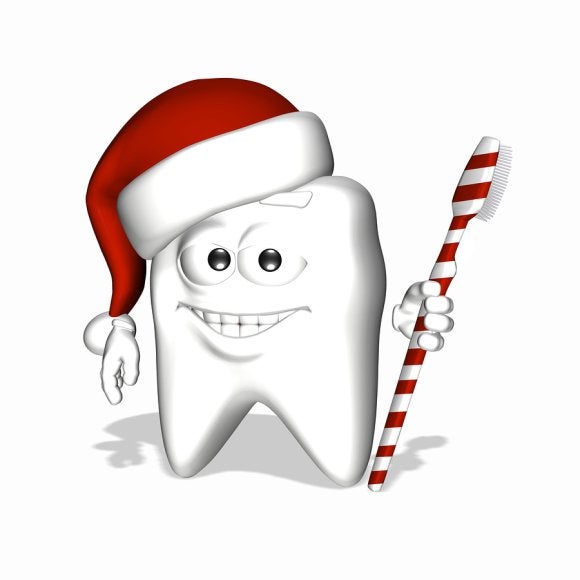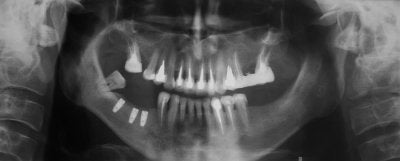-
Screening for Oral Cancer
Did you know that approximately 42,000 new cases of head and neck cancer are diagnosed each year? 65% of these begin in the oral cavity, which is why dentists in Bel Air recommend regular screening for oral cancer.
Regular visits to the dentist are essential for early oral cancer detection. During your bi-annual check-up, your dentist will conduct a preliminary screening to look for any abnormalities. About 10% of patients have a flat, painless white or red spot or a small sore on the inside of the mouth. Testing can determine if this spot is harmless or cancerous. Your dentist may take tissue for checking or send you to a specialist. Because many of these spots and tooth abscesses may be visible only to your dentist, it is vital to visit your dentist’s office, especially as you get older.
-
When Is a Root Canal Necessary?
There are a number of reasons you may need a root canal near Bel Air . A root canal is a procedure performed by a dentist to remove the tooth nerve. The procedure is done to save a tooth that has become infected or shows signs of bad decay. It may not always be immediately apparent when a root canal is necessary. This article will highlight some of the more common reasons a root canal would be required.
When Tooth Pain is Present
Not all tooth pain is a reason to have a root canal, but pain is a major indicator that something is wrong. If the pain is present when eating or when pressure is applied, it could be indicative of nerve damage. Extra sensitivity or pain to hot and cold is also a sign of nerve damage. If a tooth that is infected or badly decayed causes the pain, a root canal will need to be performed to stop the pain.
present when eating or when pressure is applied, it could be indicative of nerve damage. Extra sensitivity or pain to hot and cold is also a sign of nerve damage. If a tooth that is infected or badly decayed causes the pain, a root canal will need to be performed to stop the pain. If a Tooth has Become Abscessed
If a tooth that is infected is left untreated, an abscess will form. An abscess is a pocket of puss that forms in the tooth. An abscessed tooth can spread to other teeth and gums, furthering the infection. While it may or may not cause pain, an abscessed tooth is usually visually noticeable. The puss pocket that forms has an appearance similar to that of a pimple. Some patients with an abscessed tooth may even notice puss oozing from the affected area. A root canal is necessary to repair the abscessed tooth.When a Tooth has Been Damaged
Any time a tooth is damaged and the nerve is affected, a dentist will likely perform a root canal. In the event of trauma to the tooth, such as being hit in the face with enough force to damage a tooth, the nerve can be severed. If this happens, a root canal can be performed to fix the nerve. -
What to Expect When You’re Getting a Crown
Have you ever wanted to improve the way your teeth look? If so, one of the options to consider is to get crowns near Bel Air . Crowns are made of porcelain and are used as a cap on a tooth to fix a number of dental issues, from cosmetic to restorative. Dental crowns are used to alter the shape, size, and color of a tooth. They are custom made to fit your smile. A dentist will recommend crowns if you are looking to alter the appearance of your tooth, or as a way to cover up a filling.
When you get a dental crown, the first step is to create the molding so that your crown is custom made to fit your needs. While the crown is being made, a temporary crown will be used. It usually takes about two weeks for your crown to be completed. A second appointment with your dentist will entail removing the temporary crown and placing the custom fit crown. Your dentist will schedule follow up visits periodically to check in on your crown.

-
Inside the Dental Implant Procedure
After losing a tooth, or multiple teeth, you may want to consider dental implants near Bel Air . Dental implants are used in place of a missing tooth, as an artificial root for a new crown or bridge to fill in any gaps in your smile. An implant is surgically placed by a dentist and attaches to the existing bone. For more information about the procedure, continue reading this article.
Considering Surgery
If you have a missing tooth, you may be wondering if you are a candidate for surgery. Dental implant recipients are generally in good overall health. Since dental implants are most successful when they are able to easily integrate with the jawbone, it is best when recipients have healthy gum tissue, free of periodontal disease.
Placing the Implant
The dental implant procedure actually consists of multiple surgeries. The first surgery is the procedure to insert the implant into the gum. A dentist will make an incision in the gum to expose the bone and correctly place the implant in the gum. At this time, the implant will begin to fuse together with the bone as the incision heals. This keeps the implant in place.Placing the Abutment
Once healing is complete, usually after about six months, the dentist will make another incision to expose the implant. The dentist will inspect the implant to ensure proper healing and placement. At this time, the abutment will be attached to the top of the implant. This is the piece that will connect the implant to the crown or bridge. The second component of the procedure takes less time, and healing time is quicker as well. In some cases, a dentist or oral surgeon may opt to place the implant and abutment at the same time.Caring for a Dental Implant
Once the gums have healed and the implant is in place, a crown or bridge will be placed. This completes the dental implant procedure. To care for a dental implant is no different than caring for the rest of your teeth. Regular brushing, flossing, and dental cleanings will keep your dental implant healthy. -
What’s in Your Toothpaste?
Do you know what you can do to prevent gum disease in Bel Air ? Visit your dentist regularly and brush your teeth twice a day. One of the best ways to prevent gum disease and other dental problems is to practice good oral hygiene that includes brushing and flossing. While it is no surprise that brushing your teeth helps prevent gum disease, you may not know what is in your toothpaste that is so important.
The most important ingredient is fluoride, a mineral that helps fight bacteria in your mouth that leads to gum disease. Watch this video for more information about all the ingredients in your toothpaste. From potassium nitrate to help protect sensitive teeth to pyrophosphates to fight tartar, toothpaste is full of active ingredients to keep your teeth healthy. Your dentist can help you learn more about toothpaste.
RECENT POSTS
categories
- Uncategorized
- General Dentistry
- Toothache
- Emergency Dentistry
- Family Dentistry
- Receding Gums
- Cosmetic Dentistry
- Veneers
- Gum Disease
- Gingivitis
- Dental Crowns
- Orthodontics
- Dental Implants
- Root Canal
- Wisdom Teeth
- Teeth Whitening
- Your Smile
- Composite Fillings
- Lumineers
- Dentures
- Invisalign
- BrightSmile
- Dental Bridge
- Abscessed Tooth
- Sealants
